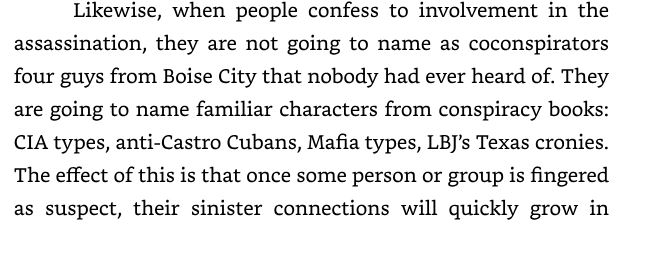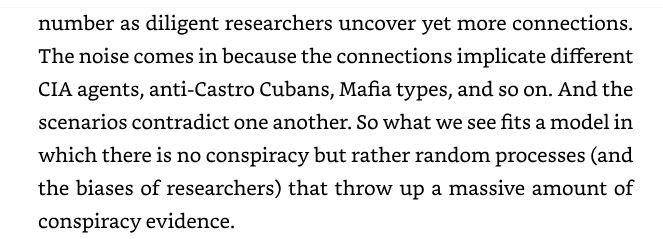https://www.onthetrailofdelusion.com/post/1991-tosh-plumlee-gerry-hemming-interview-part-two
1991 Tosh Plumlee, Gerry Hemming Interview, Part Two
Here is the second half of the Plumlee interview. Added bonus: 10 minutes with Gerry Hemming, who also claimed to have met Lee Harvey Oswald in 1959.
Plumlee's account, if you believe it, is completely at odds with the other theories that have been promoted and supported. Garrison's, Morley's, Nagell's, Hemmings et al. Do the conspiracists care? Or is the rule that if it promotes a conspiracy (not by the Soviets or Castro of course) then it's acceptable?
Morley's claims about Angleton and AMSPELL and something or other (he never gets to Dallas does he?) nowhere mentions the Garrison claims about Clay Shaw, David Ferrie and Oswald. Morley suggests that the threat about breaking up the CIA was the motive. Or Cuba. But Garrison said it was about JFK leaving Vietnam. And he doesn't mention, I don't recall, Angleton and the anti-Castro operations. Newman's theory involve the Pentagon, specifically Lansdale and Lemnitzer who killed JFK because, as he most recently claimed, JFK wouldn't order a nuclear first strike on Moscow and Beijing. That's not me saying that; that's him saying that. Then we have Nagell. And James Files and this or that and, well, it's endless.
It's all gibberish, a mishmash of names and places that are at odds with one another, that are in contradiction. John McAdams explained it below better than I did (as he notices: they never give new names, new people that can verify the allegation; it's always a noted, published name usually dead but doing things at odds with what another conspiracist said they did).

